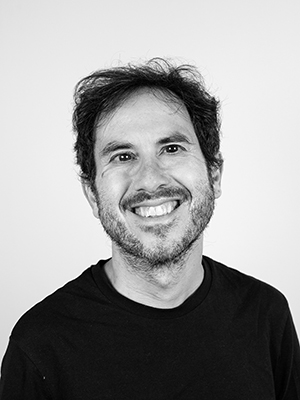
Election platform
We are living in a time of increasing uncertainty and rapid technological changes. My motivation for standing for election to the University board is to bring an important perspective on how the University of Oslo (UiO) can adopt a more sustainable, independent, and future-oriented approach to the use of technology.
Over the past 15 years, UiO has chosen IT solutions that have been comfortable from an administrative and user perspective, but which have also made us increasingly dependent on large foreign technology companies. I believe it is now imperative to break this pattern and gradually move towards a more independent use of technology. We can achieve this by:
- Prioritising solutions based on open source;
- Choosing Norwegian or European solutions where possible;
- Replacing components in our critical infrastructure with products that we can operate and maintain ourselves, without our data being sent out of the country;
- Strengthening collaboration towards the establishment of a national cloud solution.
My key issues
1. Open Source First - Prioritizing open source solutions
UiO currently spends millions of kroner on licensing fees to large foreign companies. This leads to a situation of dependency, where our data becomes tied to proprietary software that often does not integrate well with other systems. In Germany, municipalities and states have taken steps to address this situation by implementing regulations that require software used in public administration to be open source.
These funds could instead be used to strengthen our internal expertise and capacity – by developing, managing, and supporting solutions based on open source.
By investing in open source, we:
- Build competence within our organisation;
- Reduce vulnerability due to supplier dependency;
- Strengthen privacy and information security.
This transition requires effort from the entire organisation – both from users of IT systems and from the IT department, which must ensure good transition strategies and user-friendly alternatives.
2. Towards an infrastructure based on Norwegian and European components
In a world characterised by increased geopolitical uncertainty, ensuring our digital sovereignty is more important than ever. A large part of our current infrastructure is based on technology from companies such as Microsoft, Broadcom, and Cisco, where we have neither insight into the source code nor control over where data is stored.
We should:
- Establish collaborations with other research institutions in Norway to develop software and hardware components that are free from closed and proprietary code;
- Gradually replace critical services such as email, calendars, and network equipment with solutions that enhance our digital independence and security.
In this way, we can stand stronger in facing future challenges.
3. Towards a national cloud solution
UiO has already developed world-class services, such as the Services for sensitive data (TSD). This demonstrates that we have both the competence and the willingness to develop secure IT services on our own terms.
We should:
- Prioritise active participation in cross-sector collaboration for the establishment of a national cloud solution;
- Support initiatives that promote privacy, information security, and national control over data.
A national cloud platform will provide UiO and other research environments with a safer, more robust alternative to today's commercial actors.
About me
My career started as lawyer in Brazil, and I worked as an attorney in both the private and public sectors for approximately 11 years before moving to Norway in 2011 to pursue a master’s degree in ICT law at the University of Oslo.
After completing my master’s degree, and while working as a research assistant at the Faculty of Law at UiO, I completed a bachelor’s degree in computer science. I have experience as a privacy manager at the Norwegian Directorate for eHealth and, in 2018, began working as an IT engineer in the IT department at UiO. There, I have held various roles, and today I lead the authentication task force.
My interdisciplinary background in law, privacy, and IT gives me a unique perspective on how UiO can secure better technological independence, strengthen information security, and promote a more sustainable use of digital solutions.
Nominator
- Francis Augusto Medeiros-Logeay, UiO?IT Department